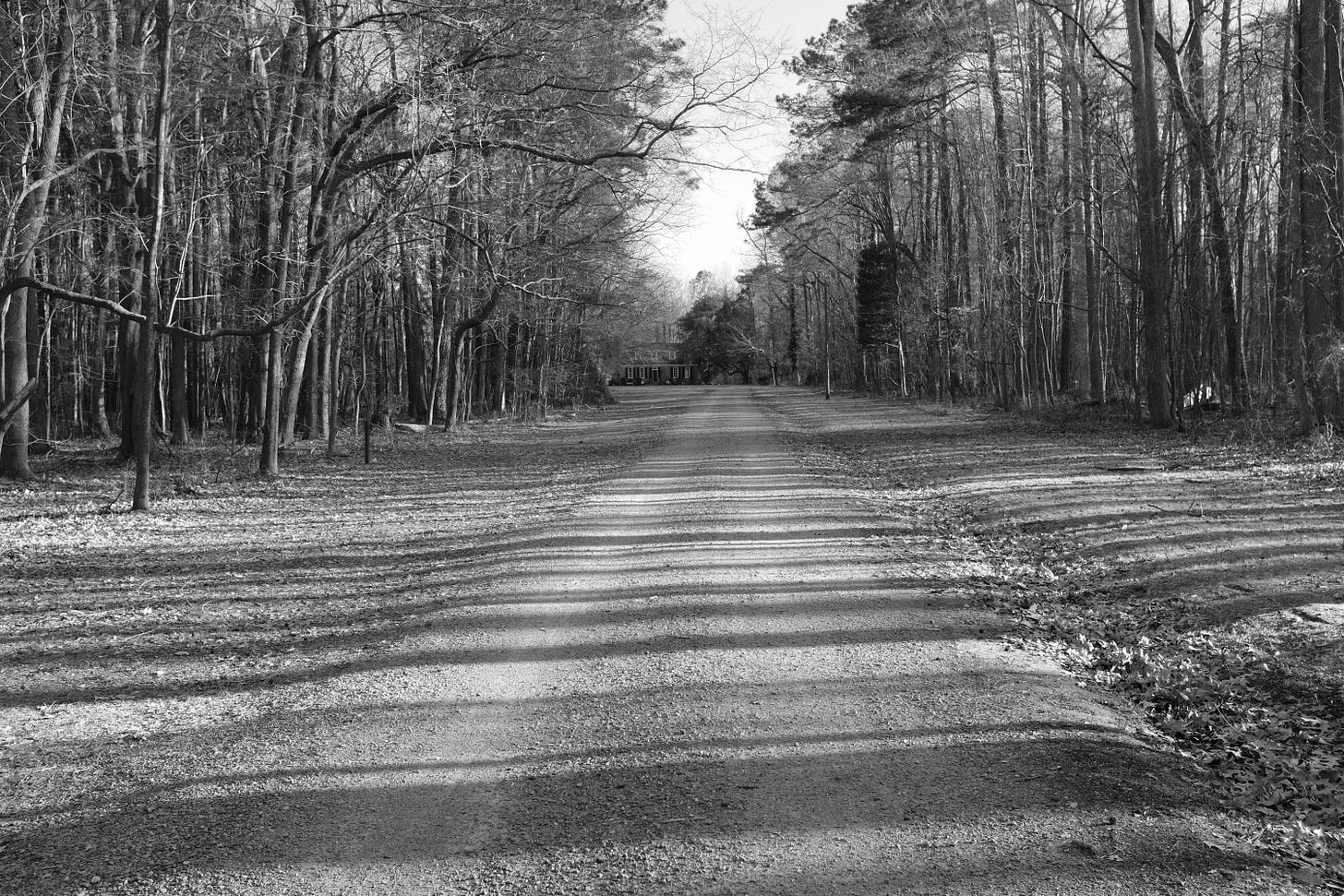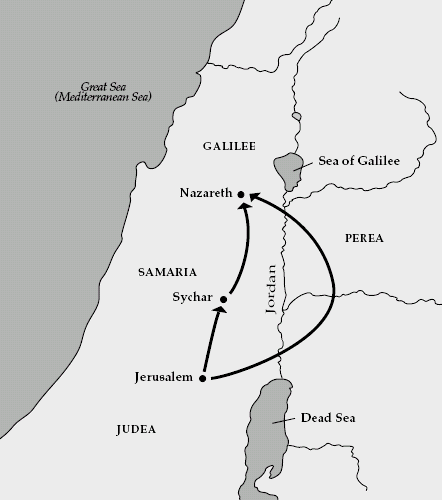Now when Jesus learned that the Pharisees had heard that Jesus was making and baptizing more disciples than John, he left judea and departed again for galilee. And he had to pass through Samaria.
John 4:1-4
If you look at a biblical map of Israel, it’s easy to see the best route to travel from Judea to Galilee is straight up (for my directionally challenged people, up in this case is north).
In Biblical times, this would seem rational and almost redundant to even mention that Jesus traveled through Samaria.
So then why does the bible take a whole verse to mention Jesus “had to pass through Samaria”?
I’ll tell you why.
To avoid being unclean, strict Jews would travel to Galilee by crossing over the Jordan River.
This was a longer journey, but it ensured that no biblical laws would be broken.
(See below)
The additional travel seemed necessary to avoid a group of people or potential conflict.
To Jews at the time, it was simple.
If you want to stay clean, you must avoid Samaritans at all costs.
But Jesus didn’t care about avoiding Samaritans.
It was during this time that He met the women at the well.
And even though he was getting criticized He kept doing God’s work.
How easy would it have been for Jesus to cross the Jordan River and continue His journey without any roadblocks?
Jesus had a purpose in Samaria but He wouldn’t have accomplished it if He took the “safest” route.
Samaria in this context is not just a physical place but a metaphor for all the mental, physical, and spiritual journeys that we are avoiding.
Ask yourself what are you avoiding to take the easy route.
What’s your Samaria?
The list of possible things we are avoiding can be endless, but I’d be extremely careful if your metaphorical Samaria is avoiding spending time with God.
The easy route is to live as if God isn’t sovereign in our lives.
But like gold through fire, we will be refined if we take the difficult path.
Do the hard things and walk through Samaria.
Don’t worry about the laughs, sneers, or judgment.
God has a plan for you so don’t run away from it.
G. Banks





